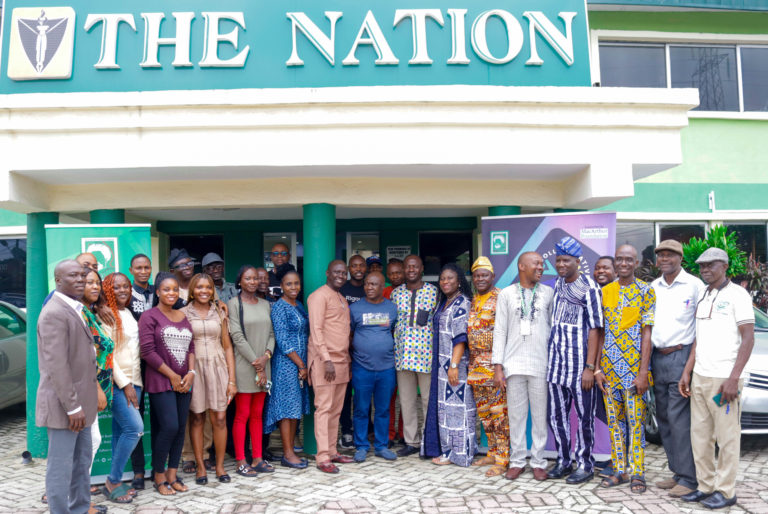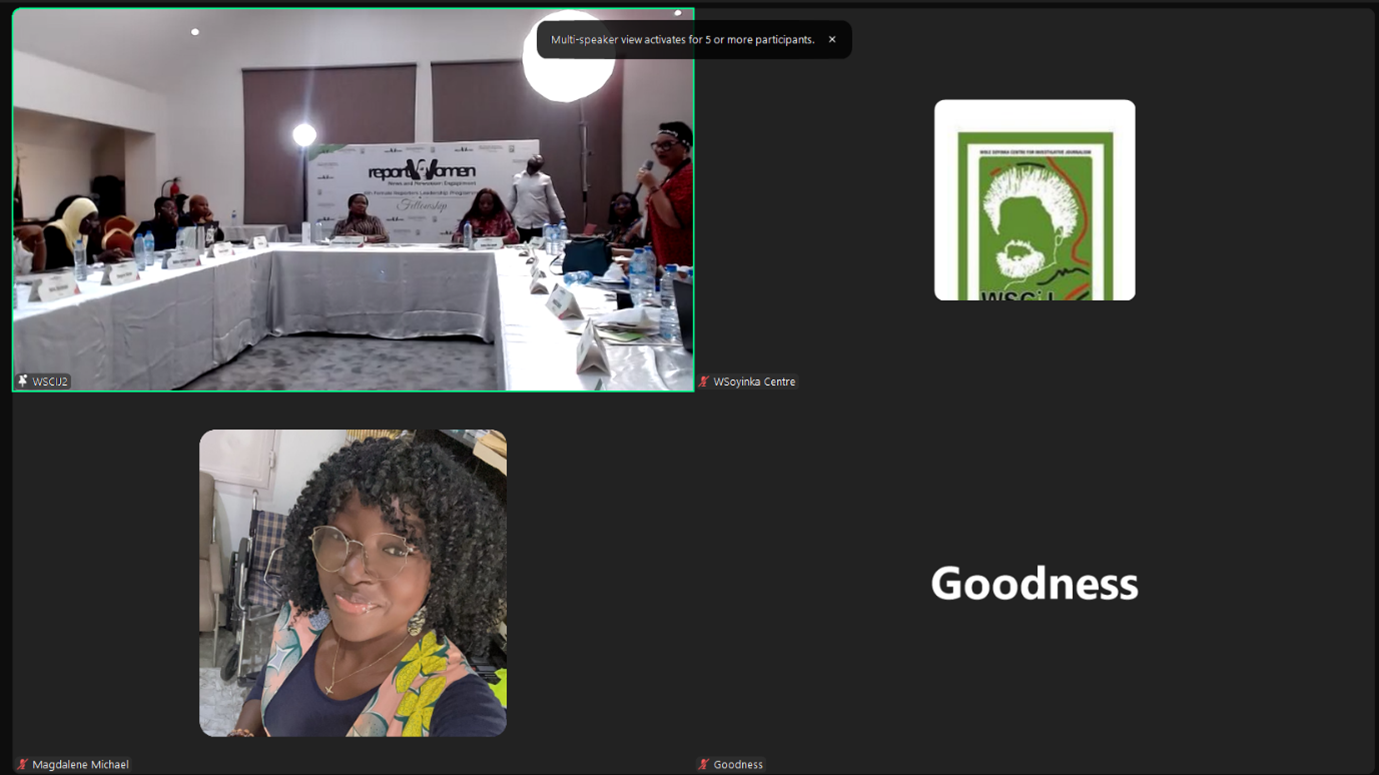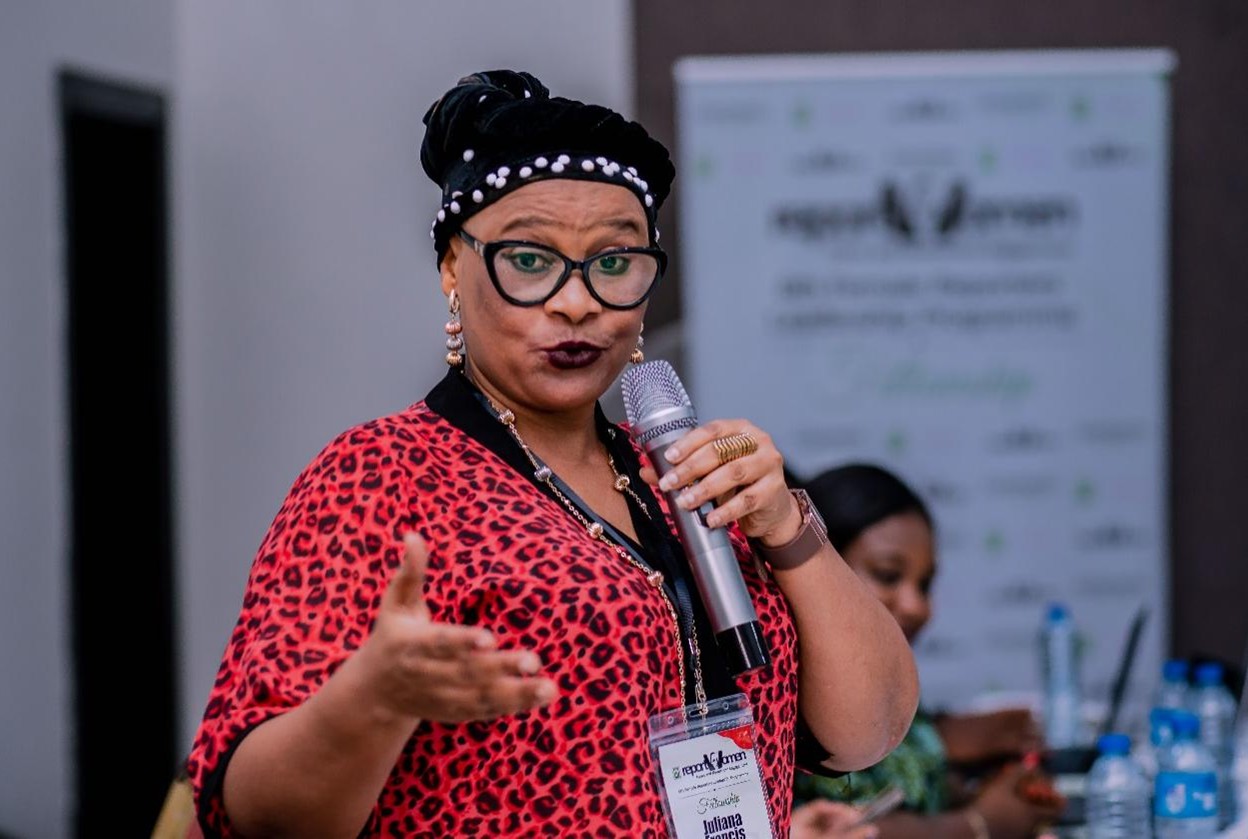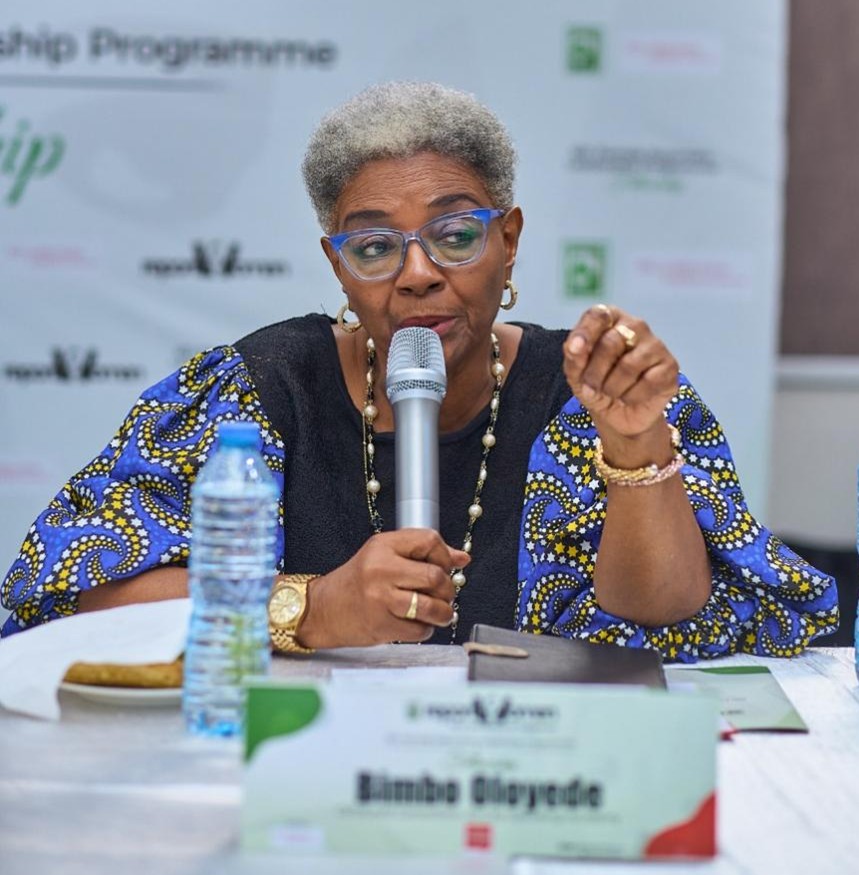Adesina Adeniyi, Editor, The Nation Newspaper, has pledged that the organisation will make more funds available to its reporters to produce investigative stories at the national and sub-national levels. He made this known during an investigative journalism training organised by the Wole Soyinka Centre for Investigative Journalism (WSCIJ) for staff of The Nation as part of the House-to-House activity under the Collaborative Media Engagement for Development Inclusivity and Accountability Project (CMEDIA).
Encouraging reporters to proactively develop compelling investigative story ideas, he emphasised that they need not wait for incidents involving corrupt government officials to occur before pursuing such opportunities.
The WSCIJ team led by Motunrayo Alaka, Executive Director/CEO, comprised of Abigail Ogwezzy-Ndisika, CMEDIA Technical Adviser; Samson Ademola, Programme & Research Officer; and Afolabi Oni, Communications Officer, while Idris Akinbajo, Managing Editor, Premium Times, was also on the ground to deliver a training on investigative journalism.
Speaking on how to strengthen its investigative journalism desk at the training, Akinbajo identified interest in investigative journalism as demonstrated by the ability to question issues as the most important team needed in a team, adding that media organisations need to constantly seek out training opportunities for its team.
The 2012 WSCIJ-Nigerian Investigative Journalist of the Year award winner highlighted the lack of editorial independence, ownership influence, self-censorship by reporters, knowledge gap of beats assigned, and inability to develop the capacity to convert story ideas to pitches as some of the challenges facing journalists and media houses in Nigeria. He challenged editors to improve their gatekeeping skills and advised journalists to cultivate their sources for cutting edge collaboration locally, nationally, and internationally.
On her part Professor Ogwezzy-Ndisika emphasised the need for investigative reporters and the media to focus on the activities of public officials at the local and state governments to accelerate development and promote the culture of accountability and inclusion of women, children, and marginalised voices. The professor of Mass Communication at the University of Lagos mentioned that with so much happening around, the media cannot afford to lose sight of happenings at these critical levels of governance.
Alaka lamented that many media organisations focus on the activities of public office holders at the national level while ignoring those of their counterparts at the state and local government level, as well as the private sector. She stated that the CMEDIA project seeks to hold government accountable at those levels. She also called on the media to hold its end of the bargain, as a high level of accountability will enable them to hold public officials accountable.
CMEDIA is a multi-level intervention which seeks to improve public awareness and the ecosystem for transparency, accountability, and good governance in states and local government and amplify marginalised voices. The project currently engages 26 direct media partners and tens of other media outfits and reporters with grants, capacity, and technical support to be independent and hold the government accountable at state and local government levels.
With the House-to-House visit, WSCIJ engages with the staff and management of media organisations to provide them with technical and financial support to publish investigative stories. In 2015, it was used to engage over 200 staff and management of eight media houses headquartered in Lagos and Abuja namely – New Telegraph, Daily Trust, Leadership, The Nation, Guardian, Premium Times, The News and Television Continental.








